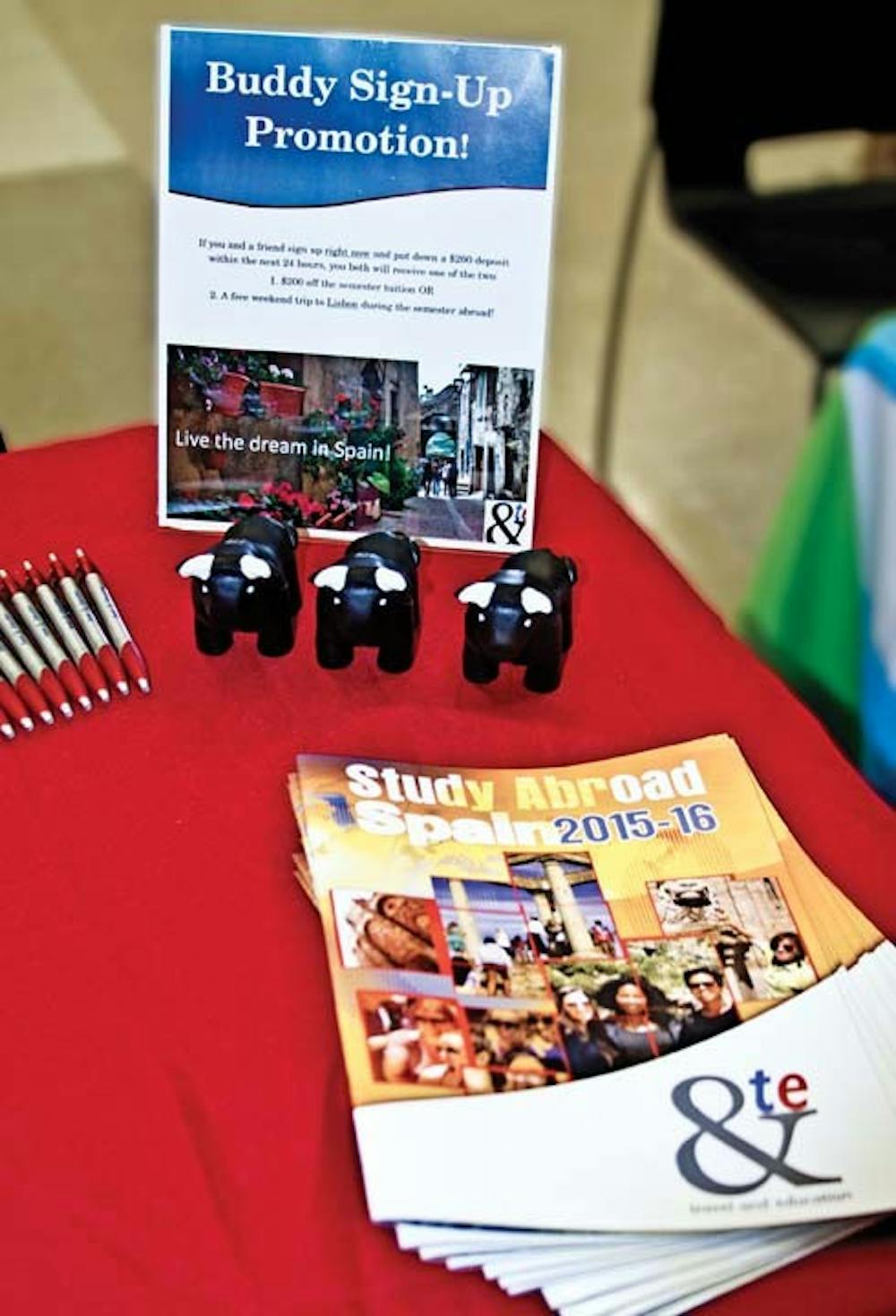Booths with posters and pictures of foreign countries filled the multi-purpose room at the Ceddia Union Building during the Study Abroad Fair Thursday.
Businesses provided information for different programs and students shared their personal experiences of study abroad.
Rattling off Korean words for different forms of “hello,” junior Jeremy Aiello described his study abroad experience at Soonchunghyang University in South Korea last spring. Soonchunghyang is about 60 miles south of South Korea’s capital, Seoul, where Aiello said he spent the majority of his time.
Aiello introduced a study abroad student from South Korea, Eunki Kim.
“It’s difficult to settle down here,” Kim said.
The language is very different, she said, but it is part of the reason she decided to study in a small American town where there would be few Koreans. Kim grew up in Incheon, a big city on the northwestern edge of South Korea. Compared to the city life, Kim said that there is nothing to do in Shippensburg.
Going into the study abroad program, Aiello was told that he would not need to know any of the Korean language. Now, however, Aiello said he is essentially bilingual, with a Korean vocabulary of more than 200 words.
Upon his arrival in South Korea he was immediately thrown into a paid internship where he spent nine hours a week with nine different Koreans. It did not matter what they did, he said, as long as they were practicing the language.
Financially, it is not as terrible as students might think, Aiello said. The tuition for him to study in Korea was the same as a semester at Shippensburg, and the school reimbursed him $800 of the $1,500 for air fare.
Through his paid internship, Aiello also made enough money to pay for food each week. One of his favorite Korean dishes was pork and rice with a fried egg on top. “Just good flavors all in your mouth,” Aiello said, describing the sauce that covered his favorite dish. The first step to finding a study abroad program starts with the Global Education Center, located in the CUB.
“They could come and talk to us,” said Ashley Geckle, who works at the international studies office in CUB 221C.
She will answer questions of anyone interested, and then direct students to a study abroad program that satisfies his or her needs, Geckle said.
However, according to Kathleen Pond, director of parent engagement, not all study abroad programs are land-based. The “Semester at Sea” program takes place on a ship that sails to different ports, stopping at each for about six days.
“Classes are held on the ship while at sea,” Pond said. There is usually a course to prepare students for each new country that they visit.
“I don’t think anyone leaves thinking it was a gloss-over,” Pond said, comparing the short duration spent in each city to the several months of emersion in a typical study abroad program.
“The goal is a global comparative education,” Pond said. Within the 100 days of the “Semester at Sea” program, students will visit 11 cities in 10 countries including Istanbul, Turkey; Takoradi, Ghana; and Salvador, Brazil.



The Slate welcomes thoughtful discussion on all of our stories, but please keep comments civil and on-topic. Read our full guidelines here.